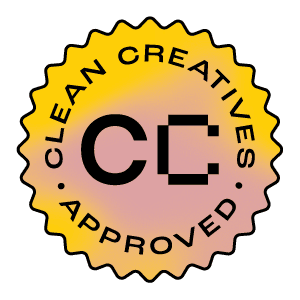How to Vet and Hire an SEO Agency

In this handy guide, we share how to vet and hire an SEO agency partner for long-term success.
Driving qualified leads is an important business goal for many organizations. Landing on Google’s first page for key search terms can be very helpful in reaching this goal. Achieving great search performance that also drives business results, however, can be a tricky process. While a solid keyword strategy is a good start, there’s so much more to creating success in this area.
Lack of knowledge or internal resources leads many organizations to search for a dedicated agency partner. Choose the wrong partner and you could waste a lot of money, or worse, get blacklisted from Google. Choose the right partner and your efforts can drive increased sales, improve page conversions, and get the right people to your content. We wrote this guide to help you make more educated decisions when considering an SEO agency partnership.
Good SEO Means Playing the Long Game
For our 2018 internet sustainability report, Mightybytes’ free web sustainability tool Ecograder crawled 1.7 million URLs over five years, evaluating them on various efficiency criteria, including how ‘findable’ a site’s pages are in search engines. In analyzing the data, we learned that the average SEO score on a scale of one to ten for those 1.7M URLs was 1.25.

If improving search results can be such a critical success factor for many organizations, why aren’t more doing it? Here are several reasons:
- Improving search performance requires patience. Google’s algorithm changes constantly, so there is no single, repeatable process that guarantees results. You must embrace a mindset of continuous experimentation and improvement. This can be a challenge for many organizations.
- Embracing experimentation requires dedicated resources—people, content, technical acumen, etc.—to bring long-term success. This can get costly.
- Experimentation also requires that you embrace failure. Not all experiments will work. Some organizations simply won’t take on this risk.
For these and other reasons, many businesses and nonprofits turn to outside partners to minimize risk and cost. If your own SEO and content marketing efforts don’t bring the results you’d like, perhaps it’s time to enlist the help of a dedicated agency.
How to Hire an SEO Agency
Many SEO agencies claim they’ll get you to Google’s first page in no time. If they don’t know what they’re doing or use ‘black hat’ SEO tactics, you could lose money. You could even get banned. We’ve seen seemingly smart SEO pros accidentally get client websites banned by Google because they engaged in shady SEO practices for quick wins. They weren’t evil, they just didn’t know what they were doing.
That said, you can see consistent, ongoing growth with an agency that understands what’s happening and why every step of the way. By following the guidelines outlined below you should be able to make a smart hiring decision quickly.
1. Beware of ‘Too Good to be True’ Offers
If an agency claims they can get you to the first page of Google overnight, be wary. They likely employ techniques that Google frowns on. Here’s an actual offer we got recently via our website’s contact form:
Product X is the most powerful SEO automation tool. Designed to publishing your content and backlinks to thousands of websites. Read More: suspicious bit.ly link
We receive about a dozen similar offers each week, which is why we decided to publish this guide. If we’re constantly barraged by spammy offers, it’s likely our clients and many others are too. As a rule, Google rewards organizations that put time and resources into optimizing their site and creating high-quality content, while it penalizes those that take shortcuts or try to game the system. There are no quick fixes. Stay away from agencies that offer them.
2. Does the Agency Take Time to Understand your Business and Users?
Anyone can run a keyword report. That’s never enough for a competent strategy. A good agency partner should take the time to clearly understand your business goals and what your target customers want. We start this process with one of our strategy and planning workshops but the process is ongoing: when we learn new things, we apply them to future work.
3. Does the SEO Agency Have a Clear Process?
Any SEO agency should be able to clearly explain their approach and process to you and share the results of these efforts for other clients.
At Mightybytes, for example, our six-step process for getting started is:
- Define what success looks like: Clearly understand the company’s business goals and how to connect those to both conversions and user needs. This is done collaboratively with all stakeholders in a meeting or workshop setting.
- Research industry search trends and current user behavior via analytics tools. Look for trends, red flags, and opportunities.
- Determine the most important data to track, analyze, and report upon based on user journeys and conversion goals. Configure necessary tools to track this information.
- Prioritize the organization’s top pages based on business goals and SEO opportunities.
- Based on research and other steps above, recommend technical fixes, target search terms, and content guidelines for those pages to draw qualified traffic, increase conversions, and improve usability. Work to improve each.
- Track and report over time; recommend ongoing improvements based on tracked data.
Over time, we’ll work with our clients to develop longer term strategies for success, such as helping them create content clusters, improve performance and usability, integrate other digital channels, or identify and improve local SEO results.
Any agency that offers these services should be able to give you a detailed breakdown of their process and point you to content that supports their claims, such as blog posts, case studies, or content clusters. Otherwise, they may not be a suitable partner to your organization.
4. Does the Agency Provide a Healthy Mix of Quick Wins and Long-Term Growth?
A good SEO agency should balance what can be optimized now with long-term growth strategies. If they focus solely on quick wins, you’ll see results wane over time. Conversely, if they focus only on long-term strategies, you may get requests for expensive projects, like a website overhaul, which might not be within your budget.
5. Does the Agency Consider UX Design in Their Process?
You can drive all the traffic in the world to your website but if users aren’t becoming customers then you’re falling short. An agency that offers SEO services without also considering user experience or conversion goals won’t be likely to achieve optimal results. Google’s algorithm is increasingly efficient at identifying good user experiences versus those that are subpar. They reward and penalize websites accordingly.
Common user experience and conversion rate optimization questions to ask include:
- Do pop-ups or ads get in the way of users completing tasks?
- Are pages slow to load?
- Do pages offer less-than-optimal experiences across mobile devices and platforms?
- Are calls-to-action and next steps clear and concise?
Related, information architecture decisions impact your SEO performance as well. This means properly deploying clear navigation, onsite search, well-organized taxonomy, and so on. Google considers these as ranking factors, plus they’re also good UX practices as well.
Digital agencies that integrate user experience design into their SEO offerings get the big picture and will be able to help you craft a site that is better for users, business goals, and search engines. Win, win, win.
6. Do They Offer Strategy Alongside Technical Expertise?
The right agency should be able to offer a seamless blend of ongoing strategy and recommendations alongside more technical updates to your site such as adding a security certificate, setting up an XML sitemap, creating schema data, or properly configuring Google Search Console. An agency that can handle both will ultimately be more efficient, which will cost you less.
7. Is the Agency Well-Rounded in Their Service Offerings?
We’re all for specializing, but SEO never works in isolation. A good SEO agency partner should also be asking questions about things like social media strategies and paid advertising.
For instance, while Google has noted on several occasions that social media isn’t a direct ranking factor, there is a correlation between social signals and ranking position:
If you create good content, it will most likely be popular on social media, and people are probably going to like it and link it to — which does boost your rankings.
Plus, social media marketing tactics change regularly just as SEO best practices do. Expect to shift your strategy for both with increasing regularity. An agency that understands the broader context of online marketing is more likely to offer better big picture recommendations in a timely manner. Similarly, with algorithm and policy changes at major social media channels like Facebook and Twitter relegating organic (i.e. ‘free’) branded content to the back seat, paid advertising is really no longer optional for most businesses and nonprofits. Plus, paid advertising should dovetail with organic SEO efforts to maximize results.
While paid advertising has become increasingly important, customers are becoming increasingly impatient as well. Many are immune to ads or have installed ad blockers, so paid ads are in no way a silver bullet. This makes it doubly important to focus on quality. With integrated services, a good SEO agency worth its salt should be able to decrease your monthly ad spend while increasing organic results and improving conversions.
8. What Link-Building Practices Does Your SEO Agency Use?
While commenting on blogs and other social networks used to be a great way to build domain authority and drive traffic to your site, Google has gotten wise to how spammers and bots abuse this practice. These days, link-building practices are more effective when they work like standard media relations. Writing guest posts for media outlets and high-ranking blogs is a good way to build inbound links that are high quality. Spending time creating detailed profiles on niche industry sites is another. For instance, Mightybytes has a Clutch profile that we have created several case studies and solicited client testimonials for. This is much different than using a spammy link-building service, which Google frowns upon.
Final Word: A Hiring Checklist
Use this checklist to vet any SEO agency looking for you to hire them:
- Make sure they offer realistic services and don’t make wild claims.
- Make sure they clearly understand both your business and customer goals.
- Have them walk you through their process.
- Look for a balance of quick wins and long-term growth in their strategy.
- Look for complementary services: UX design, technical expertise, etc.
- Do they also offer (or at least understand) paid advertising, social media marketing, etc.?
- What is their process for link-building?
There are no longer any tricks or hacks to game search engine results. If you don’t have the expertise or resources in-house to improve results, building a good partnership with an SEO agency that understands the points above can help you create success over time. We hope you found this guide helpful.
Got more questions? Feel free to contact us or check out the SEO Services we offer.



